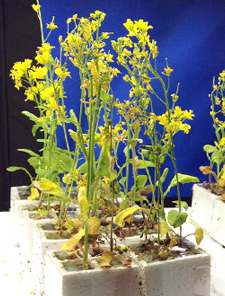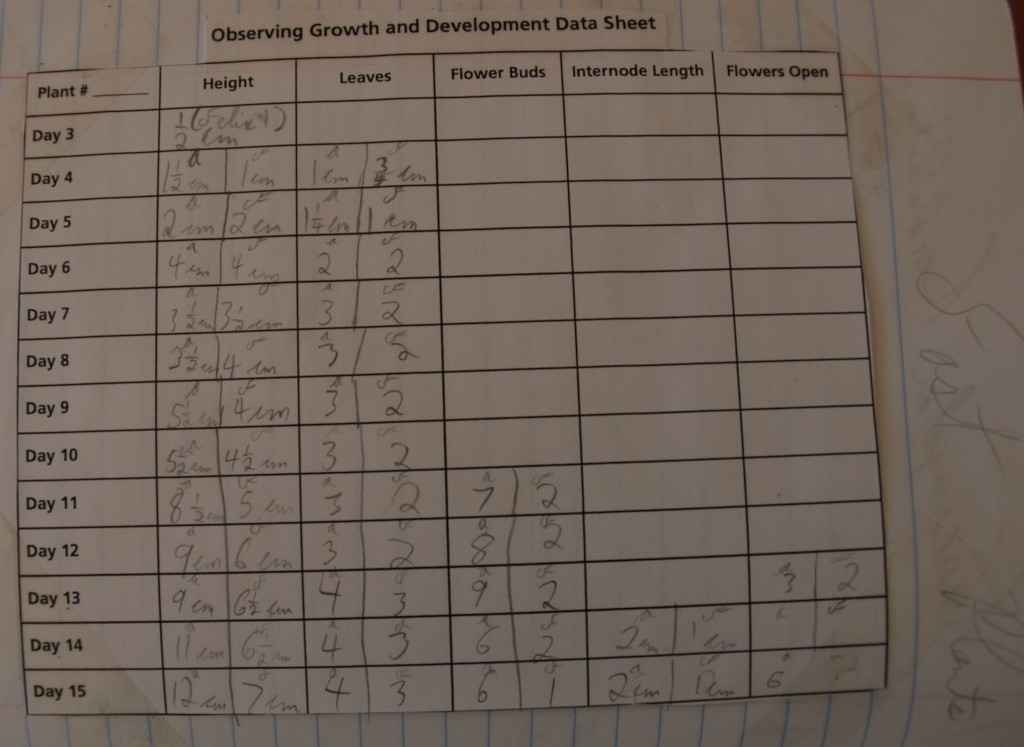Although it’s still February, the southwest is already warming up and decorated with blooming cherry blossom trees. Spring is in the air! With the new season approaching, moving into botany studies as part of life science is a natural transition.
Each year we’ve tried to incorporate growing of some kind with the children. One of the most successful botany projects we used in the classroom was using Wisconsin Fast Plants. I learned about Fast Plants in a Montessori seminar and was so excited to try it in our upper elementary classroom!
What I loved most about this experiment was that the children were able to observe the entire life cycle of these delicate plants (technically the Brassica Rapa), from seed to seed, in just about a month. Yes! Just one month – hence, the name. They truly are fast-growing plants.
We purchased the foam quad planting containers as well as the grow light. Two students shared a potting square of the container, which were marked with their names. Over the course of the month, the children planted seeds, watered as needed, “pollinated” (using bee pollinators included in the kit which mimicked bees’ role), and observed and recorded the growth. It was a fun way for the children to see the complete plant life cycle process. (Instructions from the manufacturer are here.)
As part of their daily work, the children were to observe, measure, and record any changes in their plants. They were also responsible for watering their plants as needed. They really seemed to enjoy the responsibility and watching their plants’ changes. Many children would come in each morning and immediately check their plants to see what changes had happened overnight. I clearly remember more than one squeal of delight when a new leaf or flower was noticed!
We had each student tape/gluestick a data sheet in their science notebooks to record their observations. Here’s what one student’s observation sheet looked like:
Overall, it was a successful experiment and experience for our classroom and one I’d recommend for others to try as well!
What botany experiments have you had success with in your classroom?



Pingback: Botany resources for classroom use | Virtually Montessori
Pingback: Measuring angles in the garden | Virtually Montessori